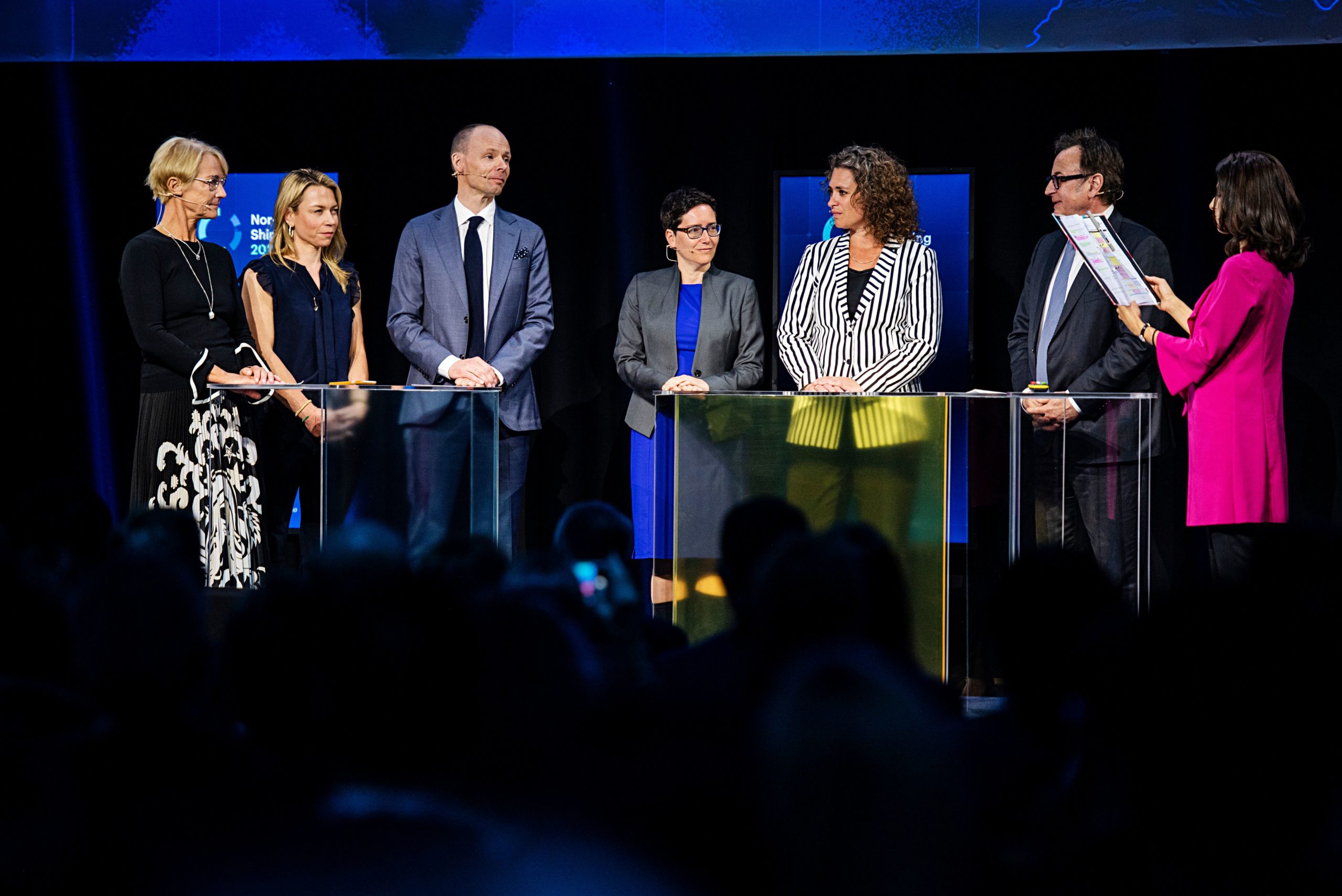The ZEEDS’ vision
What if shipping routes could be organised in the same way as highways on land – with ships docking at offshore stations to refill their tanks with clean fuel? What if there were no carbon emissions from the shipping industry and no pollution at the ports? This is the future envisioned by the Zero Emission Energy Distribution at Sea (ZEEDS) initiative.
ZEEDS takes form

Despite being more environmentally friendly than air freight, maritime shipping still accounts for 940 million tonnes of CO2 emissions per year – representing approximately 2 – 3 per cent of total global greenhouse gas emissions. According to a recent European Commission report on ship fuel oil consumption, if the shipping sector were a country, it would rank sixth in the amount of emissions produced in the world. Until now, the maritime industry has been lagging behind others in addressing the current emission reduction targets.
Acknowledging this challenge and that collaboration is necessary to switch the transition to carbon-neutral shipping into a higher gear, technology company Wärtsilä in late 2018 embarked on a quest to find partners who would join them in exploring the fastest route to zero-emission shipping. Very soon the initiative included Aker Solutions, a leading engineering and total projects execution specialist, DFDS, an international shipping and logistics company, Equinor, a multinational energy company, and Grieg Star, an international shipowner.
Making shipping carbon-neutral

The consortium kicked off its collaboration in January 2019. The partners quickly realised that in addition to transforming the shipping fleet, the industry also needs to address the logistics aspects of their operations. So instead of the traditional approach, discussing new propulsion technology to achieve decarbonisation, the ZEEDS initiative soon decided to start in the other end – asking “how can we quickly create an efficient infrastructure for distribution of zero-emission fuels”. The topic was discussed in open groups and workshops, where ideas, knowledge and experiences were shared openly and without prejudice, and during spring 2019 the ZEEDS concept materialised.
Floating hubs for clean energy

The concept consists of an entire ecosystem of offshore clean fuel production and distribution hubs –strategically deployed across the globe. The fuel hubs will set up next to offshore wind turbines, built as two-level platforms. The energy produced by the wind turbines can be used to produce hydrogen from water on the first level of the platform; while on the second level, ammonia, another clean fuel, can be made from hydrogen and nitrogen extracted from the air. The hubs can also be readapted to work with the new fuels.
Ammonia can be stored in seabed tanks using water pressure to keep the fuel liquid, and subsequently brought to the surface via bunkering buoys, from which easily manoeuvrable Energy Providing Vessels (EPVs) can be used to bunker the ships. This method is designed to avoid “traffic jams” in the main hub area. A one-hour bunkering operation will provide ships with enough fuel for eleven days of operation. Such fuel stations can be located in highly trafficked areas, so that vessels will need to pay fewer visits to ports to refuel, hence reducing their overall transportation time and port traffic.
A role-model for the world

The ZEEDS initiative employs known and available technologies by combining them in a new way, and it is completely scalable. Although initially modelled for the North Sea and Baltics, where some of the busiest shipping corridors are located and the development of renewables is already highly advanced, the same models can be transplanted to deep-sea, long-haul shipping – responsible for 70 per cent of the emissions.
The ZEEDS partnership and its revolutionary concept was first presented to the public at the prestigious Nor-Shipping opening conference, where hundreds of leaders from the international maritime industry were gathered. In the wake of the launch, ZEEDS has received inquiries from several international players who consider contributing to the consortium – and the six founding partners still welcome new companies to join the collaboration.
To be continued…